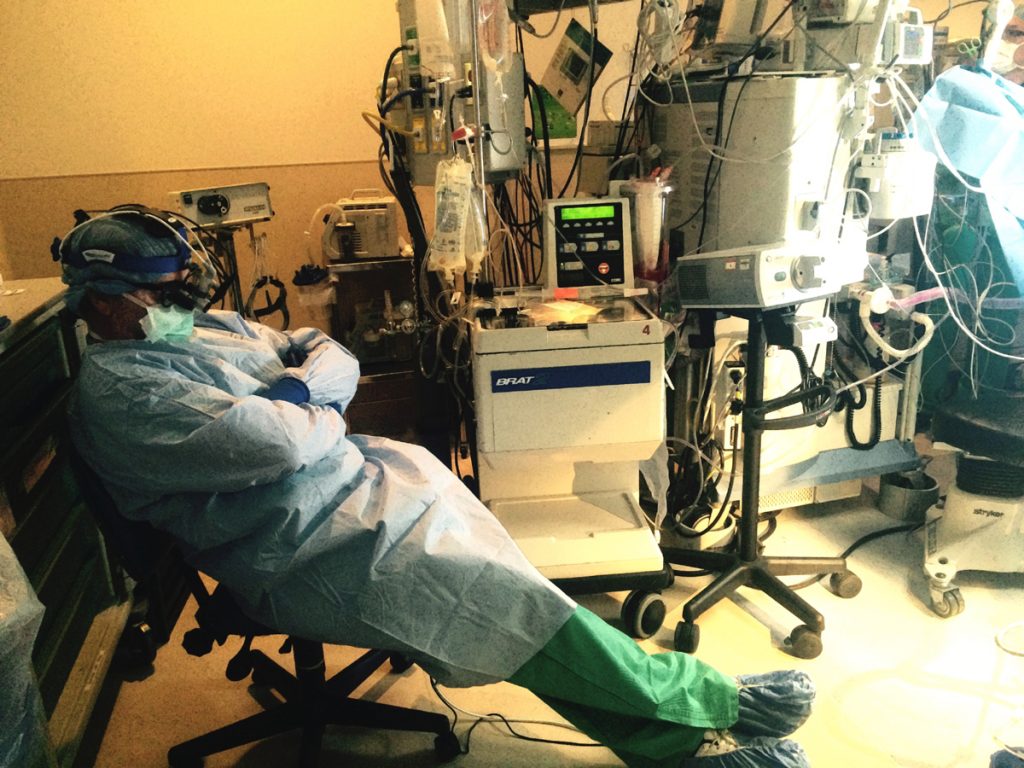
“Petulant“ ___ __Click image to enlarge-

Photographer: Frank Aprile. BBA, LP, CCP
Equipment: I-phone 5S
Editing: Photoshop
Narrative: The surgeon waits for his PA to finish harvesting an endovascular vein graft… cricket… cricket…
Time & Place: Midwest, 2015
About The Artist: Locums’ Perfusionist.


